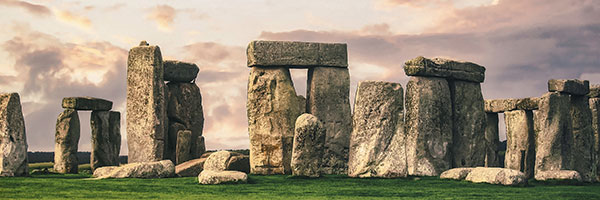History Department Objectives
Learning Framework
The University of Utah wants every undergraduate student to obtain a well-rounded educational experience during their time at our school. The History Department supports and fulfills this mission by aligning our program learning outcomes with the University’s Learning Framework—Community, Transformation, Knowledge and Skills, and Impact.
Community
We build learning communities through the small stable groups that are central to the educational experience of our required courses, History 3100 The Historian’s Craft and History 4990 Senior Seminar. In History 3100, each student is assigned to a small discussion group. Over the course of the semester the student will work with the group on class activities and participate in small group discussions, as well as being expected to be active class participants during large group discussions. In the course, students will become familiar with each other’s research topics and research processes, and at the end of term will also peer review each other’s work.
In the capstone course, history majors then take advantage of the small class size of the Senior Seminar to engage with other students in a supportive and challenging intellectual environment, as each student practices history by producing a research paper. In History 3100 and History 4990, majors share a cohort-building experience.
The History Department also fosters a dynamic community of majors who participate in our student organizations: the undergraduate History Student Association and Phi Alpha Theta, the professional society for undergraduate students of History. We also encourage our students to broaden horizons and connect to a range of communities through Learning Abroad programs and local, national, and international internships.
Transformation
Our History majors learn the critical thinking skills necessary to transform information into knowledge. At the same time they develop intellectual self-confidence and experience their own transformation. The History Department offers a self-directed major that allows students to choose their own pathways through the program, exploring the diversity of human experience and generating connections between the past, the present, and the future. Our students pursue an independent research project that allows them to develop autonomy and express their intellectual and personal engagements with historical subjects of their own choosing. In two core courses, majors learn how to provide and receive constructive feedback and how to incorporate the growth mindset into their learning experience.
Knowledge & Skills
History teaches transferable skills to all of our students. Our learning outcomes focus on formulating research questions and projects; evaluating debates; identifying, analyzing, and assessing a range of information and interpretations; using evidence to construct and support arguments; and understanding the complexity and diversity of historical subjects by exploring the ways they have lived, acted, and thought in a range of time periods and geographic spaces.
History 3100 The Historian’s Craft is a methodology course that introduces history majors to the practice of history. It emphasizes historiography, research skills, and writing mechanics; it also exposes students to history as a profession, with clear standards and expectations. The ultimate purpose of the class is to learn and exercise skills necessary to research and write a historical research project proposal. Over the course of the semester, the student will complete a series of research assignments, which will conclude in a research proposal.
History 4990 builds on the knowledge and skills students acquire in History 3100 by providing the opportunity for majors to practice history with the production of a research paper that involves primary research and critical engagement with the relevant historiography.
We encourage our students to seek out a wide variety of different perspectives, to develop global expertise, and to enhance their language skills through study abroad and the Cultures and Languages Across the Curriculum (CLAC) program—all experiences that will enhance the research proposal and senior thesis required of every major. In producing the research paper, a student might learn a range of transferable skills—data collection, information processing, analysis, interpretation, and writing—that prepare the student well to pursue further studies in education or other desired career path. A History major thus provides students with widely applicable knowledge and skills that they can bring to a range of professional careers and voluntary opportunities.
Impact
Students who major in History are provided with multiple opportunities to apply their knowledge and skills in ways that make an impact. The Senior Seminar capstone research paper teaches students both to produce knowledge and to manage a long-term project. Many students use this research to develop Honors theses, as the basis of further research through the Undergraduate Research Opportunities Program (UROP), and to apply to graduate and professional schools in order to further their education. We offer the opportunity for undergraduates to present their research at the annual Department “Practicing History” Conference and the statewide Phi Alpha Theta Conference, and support their participation at similar events on and off campus such as the UROP symposium. In addition, we provide occasions within and beyond the classroom for students to pursue public history and community-engaged learning and service projects. The History Department thus encourages all of our undergraduates to use their academic achievements, especially the senior research paper, to make a difference locally, nationally, and globally.
Program Learning Outcomes
History Department degree learning outcomes
- Evaluate debates among historians by identifying the ways in which questions about race, gender, class, ethnicity, region, religion, and other factors influence the historical narratives we write.
- Formulate historical questions and articulate a viable research project using historical methodologies.
- Explain the influence of political ideologies, economic structures, social organizations, culture, and/or environments on the ways historical subjects have lived, acted, and/or thought in particular periods and places.
- Identify, critically analyze, and assess information and interpretations drawn from a range of sources and perspectives.
- Construct and support an historical argument with evidence from a variety of primary and secondary sources.
Course Objectives
Content Knowledge
- Identify key events that express change over time
- Identify and explain the causes of both continuity and change
- Describe the influence of political ideologies, economic structures, social organizations, cultural perceptions, and natural environments on historical events
- Discuss the ways in which factors such as race, gender, class, ethnicity, region,
and religion influence historical narratives
Habits of Mind
- Explain how people have existed, acted, and thought in particular historical periods
- Explain what influence the past has on the present
- Develop an international perspective on the past that addresses the cumulative effect of global exchange, engagement, and interdependence
- Interpret the complexity and diversity of situations, events, and past mentalities
- Compare eras and regions in order to define enduring issues
- Recognize and understand a range of viewpoints
- Compare competing historical narratives
- Challenge arguments of historical inevitability
- Analyze cause-and-effect relationships and multiple causation
- Identify and address the problem of evidentiary ambiguity
Practical Skills
- Evaluate competing claims
- Differentiate between historical facts and historical interpretations
- Assess the credibility of primary and secondary sources
- Formulate historical questions
- Obtain historical data from a variety of sources
- Recognize the discipline's standards for accurate and ethical research
- Construct and support a coherent and compelling historical argument




